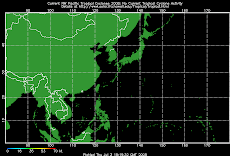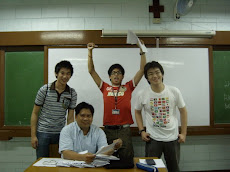PHILIPPINE SCIENCE HIGH SCHOOL NATIONAL ALUMNI ASSOCIATION, INC.
Philippine Science High School, Agham Road, Diliman, Quezon City 1104, Phillippines
TO ALL PSHS ALUMNI:
WHAT: Philippine Science High School National Alumni Association Annual Meeting
WHEN: Saturday, 14 June 2008
TIME: 9:30 a.m. - 12:00 noon
WHERE: Philippine Science High School, Agham Road, Diliman, Quezon City
9:30 -10:00 a.m. Registration (Acceptance of New Members, Last minute payment of annual membership fees)
10:00 Start of Annual Meeting
PROPOSED AGENDA:
1. Reading of the minutes of the previous meeting and action taken thereon.
2. Unfinished business.
3. New business.
4. Election (only for vacant positions in the PSHS NAA Board of Trustees).
5. Ratification of the acts of the board and the Executive Officers.
6. Other matters.
6.1 Update on the PSHS Alumni Association and PSHS National Alumni Association unification efforts.
6.2 Other updates
NOTES:
1. On Voting: Proxy – Members of good standing shall be entitled to one vote, and they may vote in person or by proxy which must be in writing and signed by the member giving the proxy, provided the proxy is likewise a member of good standing of the Corporation.
2. On Membership
Based on the PSHS NAA Constitution the following shall be the classes of members of the Corporation:
a. Regular Members: Every member who is a graduate of the Philippine Science High School System, consisting of the existing campuses mentioned in Republic Act (“R.A.”) No. 8496, as amended by R.A. No. 9036, and future campuses which shall be established under said laws, may become a member of the Corporation.
b. Honorary Members: A non-graduate of the Philippine Science High School System who has rendered valuable service to the Philippine Science High School System and/or the Corporation may be nominated as an honorary member by any regular member in good standing of the Association and may be elected as such by a majority vote of the Board of Trustees.
Every member who has paid all membership dues and all authorized special assessments, plus surcharges owing thereon, and who is not under suspension from membership privileges, is a member in good standing.
c. Membership Fee: The annual membership fee is as follows:
i). PhP 100 for members of the following batches: 2004, 2005, 2006, 2007, 2008
ii). PhP 200 for members of the following batches: 1969 to 2003
To pay for membership fees, contact Mr. Rogel Zanarosa, PHSNAA Treasurer, E-mail:
zenarosarl@pnb.com.ph, or Dr. Rafael Saldaña, E-mail:
raffysaldana@gmail.com, tel. (2) 7090907, 0928-5043121.
Annual membership fees may be accepted until just before the start of the June 14, 2008 meeting.d. Identification: Please bring a valid I.D. during the June 14 PSHS NAA meeting.
e. See Membership Application/Renewal Form and Proxy Form below.
Notice Prepared By:(Sgd.) Dr. Rafael P. Saldaña
Corporate Secretary
PSHS National Alumni Association
11 April 2008
Contact Details:Telephone/Fax: +63 2 7090907
Mobile: +63 928 5043121
E-mail:
raffysaldana@gmail.com=======================================================
NOTE: You may "cut" the following forms and send them via e-mail or fax to PSHS NAA c/o Dr. Rafael Saldaña, E-mail:
raffysaldana@gmail.com, Fax: +63 2 7090907.
=======================================================
MEMBERSHIP APPLICATION/RENEWAL FORM 2008
Philippine Science High School National Alumni Association
First Name:
Middle Name:
Surname:
Date of Birth:
Sex: (M)ale (F)emale
Mailing Address:
E-mail Address:
Website (if any):
Contact Numbers:
Mobile Phone:
Landline:
Year Graduated From Philippine Science High School:
PSHS Campus Where You Graduated:
Post-High School Education:
College: Name of School, Course, Year Level or Year of Graduation
Post-Graduate: Name of School/s, Degree, Specialization, Year Level or Year of Graduation
Special Training:
Work Affiliation: Position, Contact Details
Date Submitted:
Signature:
==================================================
PROXY FORM 2008
Philippine Science High School National Alumni Association
TO WHOM IT MAY CONCERN:
This is to authorize ____________________________________
to be my proxy during the the Annual Meeting of the Philippine Science High School Alumni Association (PSHS NAA) scheduled on June 14, 2008 in PSHS, Agham Road, Diliman, Quezon City.
Attached is a photocopy of my valid I.D. with signature.
Member's Name: _____________________________
Signature: __________________________________
Date Submitted: ______________________________
===================================================



























